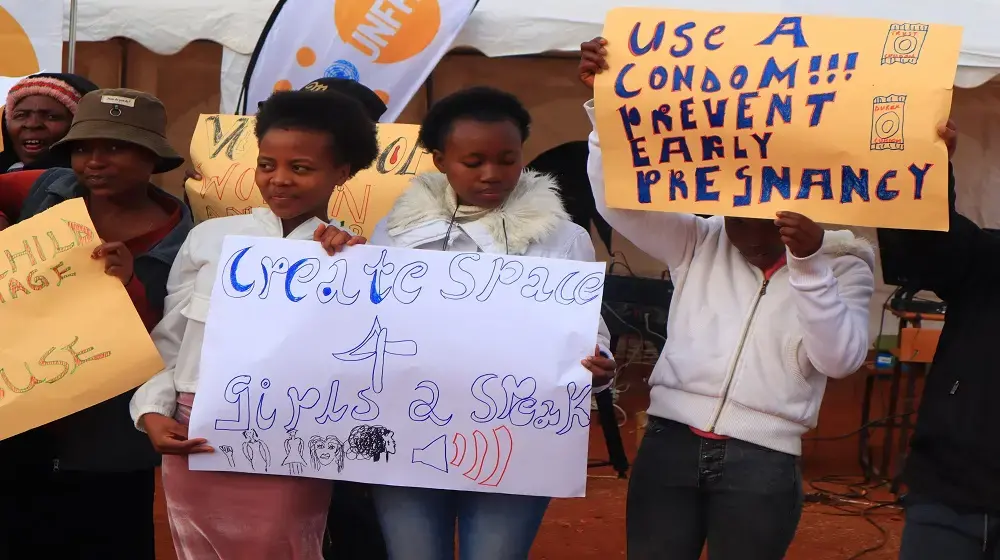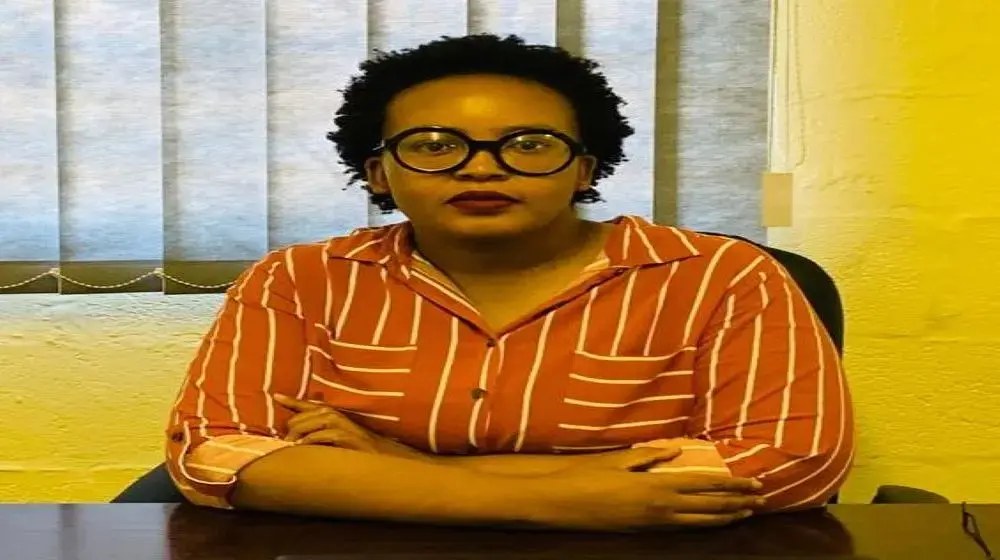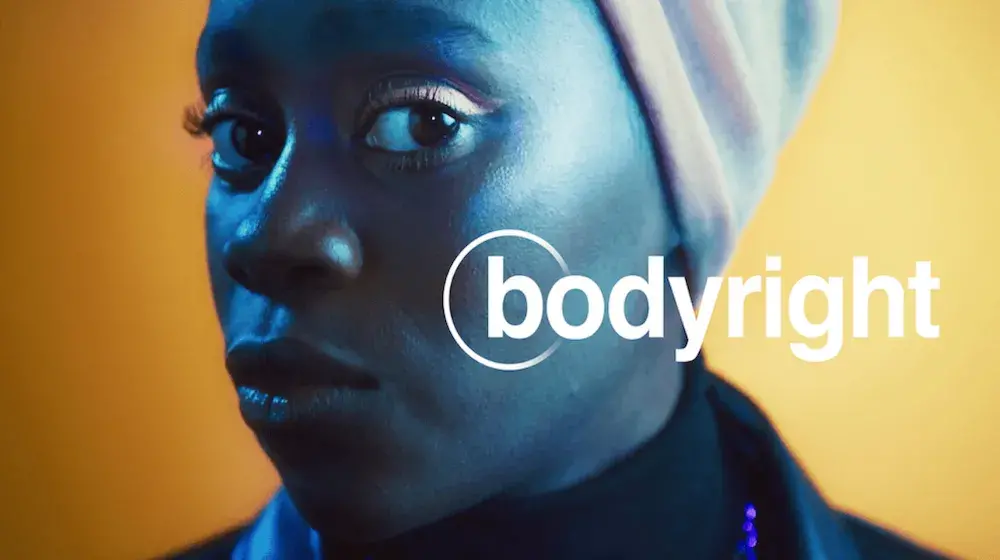Dr. ‘Mamoeketsi Ntho who is currently the Principal Secretary for the Ministry of Youth. Gender Sports and Recreation in Lesotho says, “I have great hope for young women and men in this country, there are some who are very creative and resilient.” Dr. Ntho has a passion for advancement of women in Lesotho Her greatest wish is to see the Counter Domestic Violence Bill enacted into law during her tenure in office. More importantly, she wants to ensure development and implementation of clear programmes and strategies in the Ministry. She believes the Bill promises hope for women, further saying however, that
“There is need for drastic transformation of mind-set and political will”. It is her take that, “a good law does not [necessarily] solve social ills. Without effective and well-resourced justice system, the law will remain a mere document. She further maintains that “or the Bill to have taken more than 10 years to be brought to the National Assembly is a true reflection of how government prioritises gender issues”. Dr. Ntho’s strong view is also that ‘empowered women must empower other women’, and is pleading,
“Let us build strategic sisterhood networks, this will enable us to have confidence in ourselves as individuals and in other women. Once this happens, we will be able to support women who aspire to contest the male-dominated economic and political spaces. We first need to create a critical mass in these spaces but there must be deliberate efforts to strengthen capacity building of women who venture into these spaces”.
According to Dr Ntho, Basotho women are good in establishing and supporting their social groups and networks through for instance, buying each other groceries and household appliances. They are amazingly very strong in building welfare associations among themselves. She is positive that if the same entrepreneurial spirit can be used in business ventures, women in Lesotho can lead the economic sector.
“It does not make sense that women who produce Seshoeshoe garments, for example, do not own a firm where they together export their products to South Africa and Botswana. The individualistic tendencies in business do not benefit us, we need to pool our resources together and venture into lucrative businesses,” She asserts
Dr. Ntho’s interest in Gender Based Violence (GBV) and Violence Against Women (VAW) stemmed from a Liberation Theology course in which she was introduced to feminists’ discourses in the context of Latin America. She communicates her sentiment thus:
“I got very interested and read beyond class prescribed content. I came across a lot of violence against women [information], especially in the context of conflict; how women even those who participated in liberation struggle were raped during wars, and subsequently forgotten during the transition to democracy. My interaction with gender content in my studies fuelled my interest in gender and Gender Based Violence (GBV).
Dr. Ntho’s position that understanding the drivers of Violence Against Women and Girls (VAWG) and the context within which it thrives is important for programming purposes. She passionately emphasises,
“However, treating this form of violence without challenging the normalisation of violence across different levels, including state violence, makes it difficult to get to the root causes of this pandemic. Prioritising gender equality and assigning adequate resources to fight VAWG is very important. The cost of gender equality deficit hampers contributions of women to the transformation of the country as their full potential is not harnessed.”
Her greatest achievement in life is therefore very much related to gender equality and development. She proudly associates this with the focus of her doctoral work, narrating as follows,
“Getting my PhD in Development Studies focusing on gender and development policy at Wits University [in South Africa], has opened doors that I never thought I could go through. This discipline is full of opportunities. I still believe I am going to continue with research; my experience in government will strengthen my research and community development work post- retirement. My PhD studies were sponsored by Kellogg Foundation which also took me through leadership programmes that instilled the spirit of community plough-back. This led me to establishing a rural women’s association; Basali Ntlafatsong in Quthing. I continue to get leadership training from Kellogg Alumni Network and I am motivated to continue working with communities.”
Talking about that moment of life-defining change that shaped her into the person she is today, Dr Ntho says,
“When I joined NUL as a lecturer, our department was assisted by one, Dr Itumeleng Kimane who taught a course on Gender and Development. One day she told me that she was contemplating to take early retirement and advised me to enrol for a short course on gender and development in Southern Africa, offered by University of Botswana, she even assisted me to apply for funding from the PVCs office. I went to UB and spent 10 weeks after which I landed a number of consultancy assignments including from the World Bank. It is this course that motivated me to do my PhD in gender and development policy.”
Regarding young people in Lesotho, Dr. Ntho notes that while the challenges they face are enormous, it is worth appreciating that the opportunities are as well abundant. Young people must be focused, creative and ready to grab opportunities brought by globalization especially in the green economy. The circular economy also ushers in enormous opportunities that need strategic youth leaders. About this Dr. Ntho advises that,
“The sense of entitlement to handouts is not going to take us far, there is need to be aggressive in grabbing potential opportunities in the fourth industrial revolution. A big but, is that our education system has not been proactive to accommodate challenges brought by a number of issues such as climate change and changes in the labour market.”
Dr. Ntho therefore also hopes to see the Youth Development Bill enacted into law during the current Parliament session. Among others the Bill proposes a youth development fund which will enable young aspiring business men and women to have access to financial resources for their businesses;
“If this fund can see light of the day, I will be the happiest person. Our youth are eager to run enterprises but they are frustrated by the financial requirements of banks. We are beginning to see young women venturing into agri-business, they just need financial support including financial literacy. There is also a lot happening in the creative industry driven by young people. We need to invest in this sector as it has vast opportunities for our youth.” She states.
Her best childhood is when she would top a class at primary school. She joyfully recollects this experience in this voice,
“Our examination results would be announced in front of our parents and we be called to line up, and my mother would ululate and joined by relatives. I used to enjoy attention that my family gave me every year after exams. My family introduced me to everyone by referring to my school work. My mother worked as a domestic worker in Boksburg [South Africa], and when I visited her, I would play with her bosses’ children, and everybody would praise me for speaking English fluently at a tender age. I loved reading anything even though there were libraries, I used to read comic books that my brother used to buy. I still love reading. “
Born Nkiseng Petlane at Ha-Potomane Village in the Quthing district, Dr Mamoeketsi Ntho is a mother of two children -a boy and a girl- and grandmother to two grandsons. She became a widow at the age of 48 years. She has taught at Primary, secondary, college and university level. The following narrative sums up her work-related experience
“I taught at NUL for more than twenty years, and I was senior lecturer in the Department of Development Studies. Although I have worked in Maseru district for more than 25 years, my home is at upper Moyeni, Quthing. This is where I want to retire to, I enjoy the simplicity of rural life. I have just ventured into agribusiness at my birth place- Ha Potomane. I love motivating women to follow their dreams, I am often invited by church groups to speak to women about gender equality issues; I am a member of a women church group of LECSA [Lesotho Evangelical Church in Southern Africa] where I enjoy using the Bible to empower women.”
Where does she see herself in the next 10 years?
She sums it all as below.
“Running my consulting firm focusing on gender and community development. I enjoy empowerment sessions with rural women, the feedback I normally get after these is always very gratifying. I also see myself contributing to food security of my district by engaging in agri-business, I have just started with two green houses and I can already see prospects of going wide.”
During her spare time, Dr Ntho enjoys reading development and political articles. “I religiously follow tweets on gender or feminism. I love eating out, even if it means going alone, I love travelling to tourism destination. Of course, I have a bunch of oldies that I travel with, especially to Eastern Cape.” She says, ending her story!





